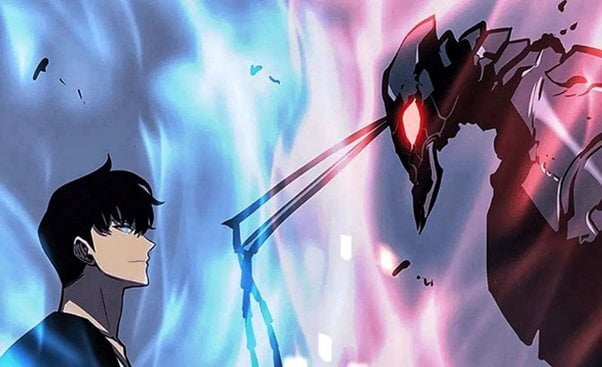
“Attack on Titan Concludes Epic Saga of Humanity vs. Titans”2025

the world of Attack on Titan has finally come to a close. What began as a mysterious tale of monstrous titans attacking a walled civilization has evolved into one of the most ambitious and emotionally complex stories ever told in anime—and arguably, in storytelling at large.
Now that the final credits have rolled, we’re left not only with answers, but with questions, heartbreak, and the heavy weight of reflection. This is more than just a goodbye to a show. It’s the end of an era.
Wistoria
The Beginning: A Wall, a Titan, and a Scream

When Attack on Titan (Shingeki no Kyojin) premiered in April 2013, it was an instant phenomenon. The brutal, high-stakes premise was enough to draw in millions: humanity’s last remnants live behind three massive walls, terrified of the giant, man-eating Titans outside. When the Colossal Titan appears and smashes through Wall Maria, it kickstarts a chain reaction that sets everything in motion.
At the center of it all is Eren Yeager—a boy who vows to destroy every last Titan after witnessing the death of his mother. Alongside childhood friends Mikasa Ackerman and Armin Arlert, Eren joins the Scout Regiment, seeking revenge, truth, and freedom.
But as fans quickly learned, nothing in this world is what it seems.
The Shift: From Monster Horror to Philosophical Epic

What sets Attack on Titan apart isn’t just its action or animation. It’s the constant evolution of its story.
The Titans, initially terrifying forces of nature, turn out to be humans—some transformed willingly, others against their will. The walled civilization we thought was the last vestige of humanity is actually a prison island. And beyond the sea? A nation that sees them as devils.
Isayama pulled off what few creators dare to attempt: he changed the entire scope and tone of his story mid-series. What started as a survival horror turned into an intense, layered geopolitical thriller exploring themes of war, propaganda, racism, generational trauma, and the cycle of vengeance.
The real horror wasn’t the Titans—it was what people were willing to do in the name of freedom.
Eren Yeager: From Hero to… What Exactly?

Perhaps the most controversial and fascinating part of the series is the transformation of Eren Yeager. Once the embodiment of righteous rage, Eren slowly becomes a figure who sees genocide as the only path to peace. Through the terrifying power of the Founding Titan, he unleashes the “Rumbling,” a cataclysmic march of Colossal Titans intended to flatten the world outside the island.
Fans are divided: is Eren a freedom fighter? A mass murderer? A tragic product of a cursed world?
The final episodes force viewers to grapple with these questions—and not everyone finds closure. And maybe that’s the point. Eren’s story isn’t meant to leave us comfortable. It’s meant to make us think, to question, and to look in the mirror.
The Final Season: Animation, Emotion, and Existential Dread

The final season, split into multiple parts (a decision that sparked some criticism and a lot of memes), was a visual and emotional tour-de-force. Studio MAPPA took over animation duties from Wit Studio, bringing a darker, grittier tone that matched the series’ descent into moral ambiguity.
Each episode felt like a dagger: Sasha’s death, Levi’s devastating losses, Zeke’s backstory, and the horrifying Rumbling. Then came the final stretch—the Alliance, a desperate group of former enemies, trying to stop Eren not just to save the world, but to save their friend.
MAPPA pulled out all the stops in the final episode. The animation was stunning. The music (shoutout to composer Kohta Yamamoto and the return of Hiroyuki Sawano) pierced every scene. And the emotional weight of the story—every death, every betrayal, every sacrifice—landed with full force.
The Ending: Bittersweet, Brutal, and Beautiful

Eren is stopped—but at great cost. Mikasa delivers the final blow, ending the life of the boy she’s loved since childhood. It’s a heartbreaking moment, not just because of what she does, but because of what it represents: the ultimate sacrifice for peace. The price of ending the cycle.
The world survives, but it’s far from saved. The scars remain. Tensions continue. War may still loom. But there’s also a flicker of hope—fragile, yet real.
It’s not a clean, happy ending. But it’s honest. And that’s what makes it powerful.
Legacy of Attack on Titan: A New Standard for Storytelling

It broke into mainstream pop culture. It drew comparisons to Game of Thrones and The Walking Dead. It challenged viewers with questions about freedom, morality, and the human condition. It gave us characters we loved, hated, and mourned.
And it did all this while never compromising on its themes or tone.
From the brutal first episode to the soul-crushing finale, Attack on Titan remained true to itself. That kind of commitment is rare. And unforgettable.
Final Thoughts: Thank You, Isayama

As we close the book on Attack on Titan, it’s worth acknowledging the man behind it all: Hajime Isayama. His storytelling was daring, messy, and often divisive—but always sincere. He crafted a world that felt terrifyingly real and asked us to question who we’d be if placed in the same situations.
No ending would please everyone. But Isayama didn’t try to please. He tried to be honest. And in that honesty, Attack on Titan finds its ultimate strength.






